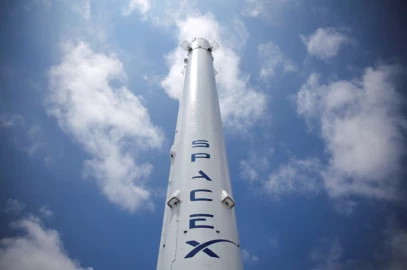A high-stakes political clash between Elon Musk and former U.S. President Donald Trump has ignited fears over the future of America’s space ambitions, with up to $22 billion (Ksh.2.8 trillion) in government contracts with SpaceX now at risk.
The feud, which erupted publicly on Thursday, was sparked by Musk’s criticism of Trump’s latest tax-and-spending legislation. Trump retaliated by threatening to cancel government contracts with Musk’s companies—prompting an unprecedented response from Musk, who said he would begin “decommissioning” the Dragon spacecraft, the vehicle NASA relies on to ferry astronauts to the International Space Station (ISS).
Although Musk walked back the threat hours later—responding to a user on X urging calm by replying, “Good advice. Ok, we won’t decommission Dragon”—the brief outburst marked a dangerous escalation in a partnership critical to the U.S. space program.
NASA’s Reliance on Dragon
Under a $5 billion contract, SpaceX’s Dragon capsule has been NASA’s only active U.S.-based crew transport to the ISS since the retirement of the Space Shuttle. Its withdrawal would disrupt NASA operations and the broader multinational ISS agreement, which involves over a dozen countries.
NASA press secretary Bethany Stevens declined to comment on the dispute directly, stating only:
“We will continue to work with our industry partners to ensure the president’s objectives in space are met.”
Political Fallout and Budget Battles
The Musk-Trump spat could also have far-reaching implications for space policy. Until last week, Musk had chaired Trump’s initiative to shrink the federal government. Now, Trump appears ready to retaliate politically, beginning with the abrupt removal of Musk ally Jared Isaacman as nominee for NASA Administrator.
Trump justified the move by labeling Isaacman “totally Democrat,” referencing public records showing Isaacman’s political donations to both parties—but mostly Democrats.
Musk’s companies have enjoyed strong support under Trump, with benefits that included:
- A planned pivot from a NASA moon program to a Mars-focused agenda led by SpaceX’s Starship
- Favorable decisions in Pentagon satellite contracts
- Backing for SpaceX’s role in building a space-based missile defense shield
However, Trump’s new federal budget plan could undercut that progress by ending NASA’s Artemis program beyond its third moon mission. The Senate Commerce Committee, in a move possibly aimed at counterbalancing Trump’s budget, restored funding for Artemis IV and V, proposing at least $1 billion annually for the SLS rocket through 2029.
The outcome of that legislative tug-of-war will be a telling signal of Musk’s remaining influence in Washington.
SpaceX’s Dominance—and Its Vulnerabilities
Founded in 2002, SpaceX has secured more than $15 billion in NASA contracts for its Falcon 9 rockets and Starship. It has also won Pentagon contracts for national security launches and is developing a massive spy satellite system for the U.S. intelligence community.
According to Justus Parmar, CEO of SpaceX investor Fortuna Investments, the company could weather a political storm:
“It fortunately wouldn’t be catastrophic, since SpaceX has developed itself into a global powerhouse that dominates most of the space industry.”
“But there’s no question that it would result in significant lost revenue and missed contract opportunities.”
Nonetheless, the episode raises serious governance and safety concerns. Former NASA Deputy Administrator Lori Garver emphasized that even the threat of decommissioning the Dragon spacecraft was irresponsible:
“A rogue CEO threatening to decommission spacecraft, putting astronauts’ lives at risk, is untenable.”
She added that it’s unclear whether the president can unilaterally cancel such contracts, suggesting any retaliatory moves could face legal hurdles.


